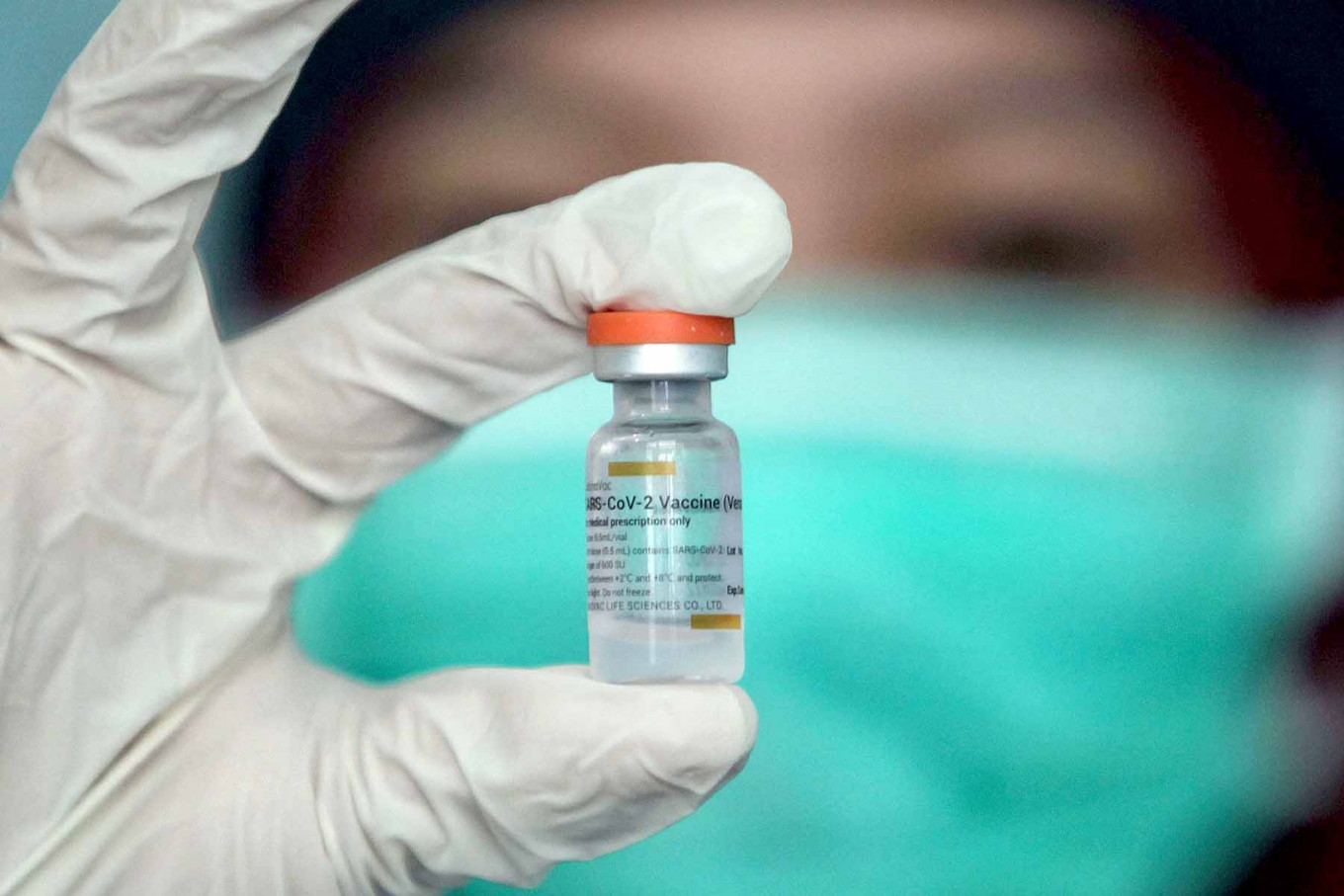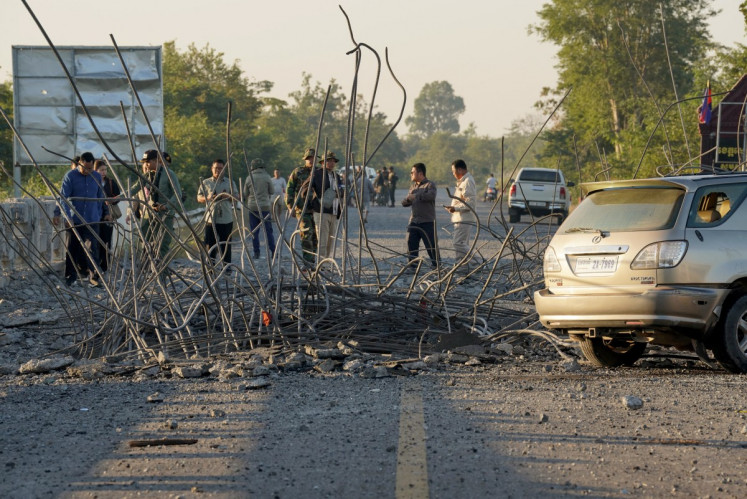Popular Reads
Top Results
Can't find what you're looking for?
View all search resultsPopular Reads
Top Results
Can't find what you're looking for?
View all search resultsPrivate vaccination talks could spell bad news
The Health Ministry is exploring the possibility of allowing for private COVID-19 vaccination, raising concerns about possible disruptions to the government's free inoculation program, which is currently in place to prioritize those most at risk.
Change text size
Gift Premium Articles
to Anyone
T
he Health Ministry is exploring the possibility of allowing for private COVID-19 vaccination, raising concerns about possible disruptions to the government’s free inoculation program, which is currently in place to prioritize those most at risk.
Health Minister Budi Gunadi Sadikin said there had been talks on private vaccination but they were not yet final. He explained that as a regulator, his objective was to obtain vaccines as soon as possible and for the lowest cost possible.
He said any private vaccination scheme could only commence after the inoculation of medical and public workers, so as to prevent the narrative that “people with money” were first in line for the vaccine.
“Or the second [option] is to prohibit [private vaccination] for individuals, [instead] allowing only corporations [to receive the benefi t], with one requirement being the corporations purchasing the vaccines must inoculate all their workers and not just their directors or upper-level workers,” Budi told lawmakers in a hearing last week.
In this scenario, the private sector would need to procure a vaccine on its own. Any vaccines must meet the approval of the World Health Organization and the Food and Drug Monitoring Agency (BPOM), and all data must be integrated with the Health Ministry.
However, with a shortage of available vaccines, the government plan was likely to face problems and it therefore must be avoided, Griffith University global health researcher Dicky Budiman said. He said that during the ongoing health crisis, vaccines were not an economic commodity but a public good, meaning they should fall in line with public health strategies.
People above the age of 59 will have to wait for the procurement of another vaccine or for trial data showing Sinovac can be used on them.
“The public health strategies to contain the pandemic […] mean [vaccination] must be carried out fi rst on those at the highest risk, not those with the most money,” Dicky said.
Read also: 'Long road' to herd immunity even with COVID-19 vaccination
Many experts have said that in addition to medical and public health workers, people aged 60 and up needed to be prioritized by the government for vaccination, as the demographic accounted for the largest share of COVID-19 deaths in the country at 44.6 percent.
As of Sunday, the nationwide death toll from the coronavirus reached 25,987.
Indonesia had received enough of a CoronaVac vaccine supply from China’s Sinovac Biotech to inoculate around 1.3 million medical workers in the first few months of this year. A total of 17.4 million public workers will also require vaccination, though which public health workers would be prioritized was still under discussion, Budi said.
As the vaccination drive kicks off , data and registration problems loom. Only 300,000 of the targeted healthcare workers have registered for shots, with only 20,000 of them having been vaccinated as of Sunday, according to the Health Ministry.
The Sinovac vaccine has not yet been given the green light for the elderly, who are next in line for the ministry’s vaccination plan. People above the age of 59 will have to wait for the procurement of another vaccine or a version of the Sinovac vaccine that is approved for them.
Read also: Indonesia allows emergency use of Sinovac vaccine
Indonesian Chamber of Commerce and Industry (Kadin) chairman Rosan Roeslani said that he had proposed allowing companies to inoculate their workers and their families first before providing the service to the wider public.
“We’re just providing options. Just like with people who are applying for a visa, if they want to get it faster, they have to pay more. It’s an option; if we go to Disneyland and get on the attraction faster, we buy the premium fast pass,” he told The Jakarta Post on Sunday.
Rosan said two procurement schemes had been proposed to the government, with one involving companies importing the vaccines on their own and the other involving the purchase of COVID-19 vaccine doses from the Indonesian government.
In terms of the first scheme, he said “vaccine producers require that the government allow them to directly sell vaccines to the private sector in Indonesia”.
Indonesian businesspeople, he went on, had approached producers like American firms Pfizer and Moderna, the United Kingdom’s AstraZeneca and Russia’s Sputnik.
Read also: Hospital beds remain scarce as Indonesia rolls out vaccines
Epidemiologist Laura Navika Yamani said that as vaccine procurement abroad was mostly led by governments, Indonesia would be ill-advised to sell its vaccine supply to the private sector; it must first focus on protecting those at risk to suppress the death rate, before carrying out free vaccination as widely as possible.
“I hope that the government also pays attention to these priority groups. If it only has a certain budget, then use it to protect these groups first,” she said, adding that authorities must also try to secure a vaccine that was approved for the elderly.
“This is what equality means,” Laura said.










